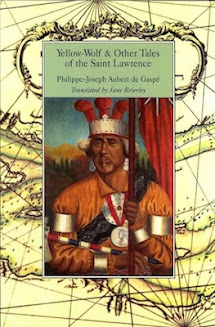Franklin W. Dixon [Leslie McFarlane]
New York: Grosset & Dunlop [c. 1960]
214 pages
 |
| London: Harold Hill & Son, 1953 |
One of the cars retrieved was a Pierce-Arrow, belonging to a "queer" antiques dealer named Elroy Jefferson. He was away in Europe at the time and so never had a chance to thank Frank and Joe. Now that Jefferson has returned to Bayport, he rewards them with two crisp hundred dollar bills (roughly $3700 today):
The boys protested, but Elroy Jefferson insisted, and finally they were forced to accept the reward.
“Now,” said Mr. Jefferson, “if there is anything else I can do for you at any time, don’t hesitate to ask me."
I won’t sell him the island at any price, and I told him so. You see, when my wife and son were alive they loved to go there in winter and summer, so Cabin Island has certain associations for me that cannot be estimated in terms of money. They are dead now, and I cannot bear to part with the place.
What exactly is Hanleigh up to?
Hear me out.
Frank, Joe, Biff, and Chet, spend the following day exploring Barmet Bay on ice boat. Upon returning to the cabin they find that their "grub" has been stolen. The following morning, the Hardy boys set off for in their iceboat for supplies at a general store run by chatty old-timer Amos Grice. Upon learning that the boys are staying on Cabin Island, the storekeep relates a fascinating story about an extremely valuable stamp collection that had been stolen from Elroy Jefferson by his man servant John Sparewell some fifteen or so years earlier.
Back on Cabin Island, Joe comes across a notebook belonging to John Sparewell:
"Sparewell," mused Frank. "Where have I heard that name before?"
There's little in the way of sleuthing here. The mystery of The Mystery of Cabin Island is revealed when the chimney comes down in a winter storm, exposing the missing collection.
The boys are again rewarded, this time to the tune of $200 apiece. Jefferson gives lesser players Biff and Chet $100 each.
Leaving aside stereotypes associated with Jefferson's occupation, and that he spends most of the year in Europe rather than provincial Bayport, I might've thought I was reaching had it not been for Grice's reaction upon learning that the antiques dealer had allowed the boys to camp on his island:
“Yes, that’s just like Mr. Jefferson. Got a heart of gold, specially where boys is concerned. But queer — mighty queer in some ways,” said Amos Grice, again wagging his head. "Do you know" — and he leaned forward very confidentially — "I really think he married Mary Bender because of her postage stamp collection.”
This amazing announcement left the Hardy boys rather at a loss for words. “He married his wife because of her postage stamp collection!” exclaimed Joe.
“That’s what I said. You’ve heard of the Bender stamp collection, haven’t you?” he demanded.
The boys shook their heads.“Well, I ain’t a stamp collector and I’ve heard of it. The Bender collection is supposed to be one of the greatest collections of postage stamps in the world. Why, I’ve heard tell that it’s worth thousands and thousands of dollars.”
“And Mrs. Jefferson owned it?”
“Yep. Her name was Mary Bender then, and she inherited it from her father. I got parts of the story from people who knew Mr. Jefferson well. It seems he has always been a collector of antiques and old coins and stamps and things, but one thing he had set his heart on was the Bender stamp collection. But he couldn’t buy it. Either Mr. Bender wouldn’t sell or Elroy Jefferson couldn’t raise the money — but somehow he could never buy them."
"Mary Bender died just a short time after. And ever since the stamps were lost, Elroy Jefferson ain’t been the same. [...] It seemed to break Elroy Jefferson all up, because that collection was the pride of his heart, and when it disappeared so strangely, he just didn’t seem to take any more interest in anything."
Now, if McFarlane had written "so queerly" instead of "so strangely" I might be more certain.
Caution: Of the four ice boats that feature in the novel, two are destroyed in accidents. Fortunately, no lives were lost.
 |
| London: Armada, 1982 |
Object: This one was purchased eight years ago for one dollar. It once belonged to a girl named Pamela who lived on Blasdell Avenue in Ottawa. That she wrote her name and address in the book using a fountain pen gives some indication as to its age. A further clue is found in the book's list of previous Hardy Boys Mysteries, the most recent being The Mystery of the Chinese Junk (1960).
Access: The Mystery of Cabin Island was first published in 1929 by Grosset & Dunlop. As I write, two first editions with dust jackets are listed for sale online. The cheaper is going for US$700.
The novel was rewritten in 1966 by Anne Shultes, Andrew E. Svenson, and Harriet Stratemeyer Adams. This is the version in print today.
I'm not familiar with the revision, though as I understand it involves a missing grandchild, medals, and a smattering of racism. How much of Leslie McFarlane's original remains I cannot say, but I'm guessing it isn't much.
As far as I can tell, there had been three translations – French (Le mystère de l'Île de la Cabane), Swedish (Mysteriet i jakstugan), and Norwegian (Hardy-guttene og den stjålne frimerkesamlingen) – though I expect all are of the revision.


































